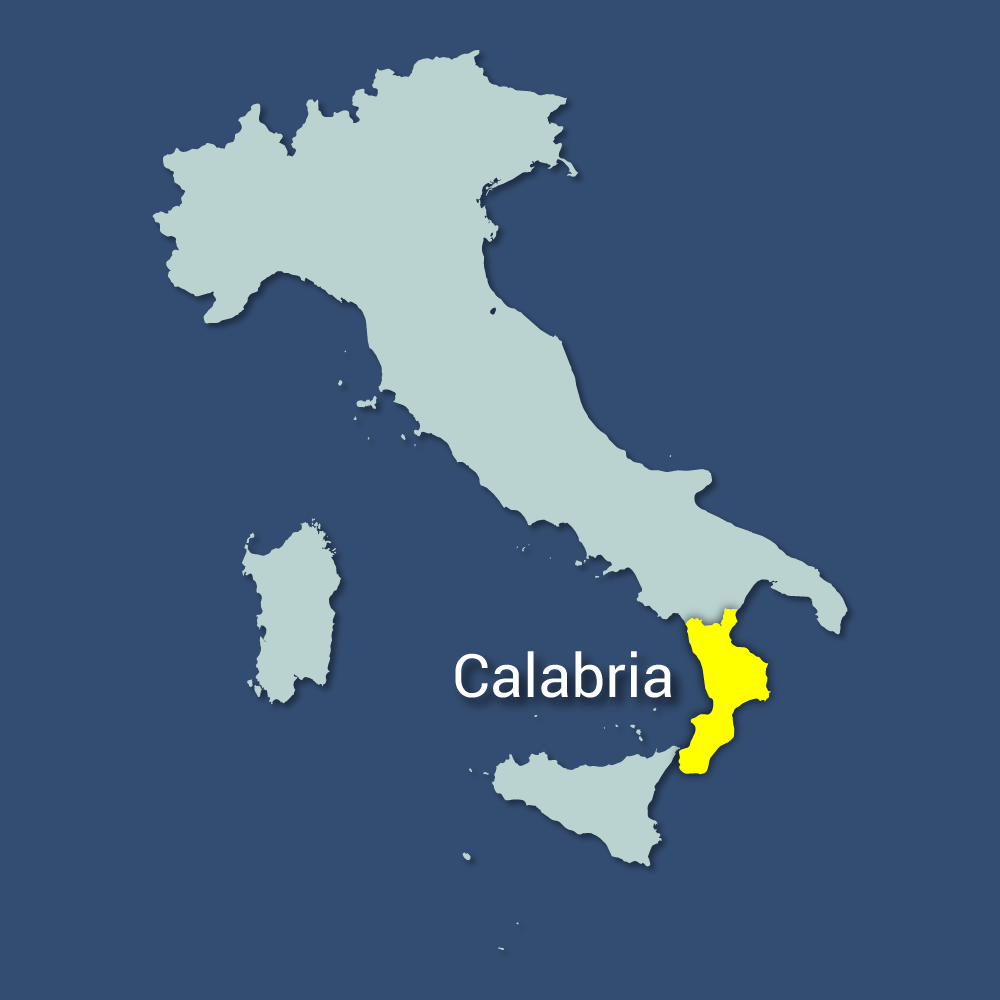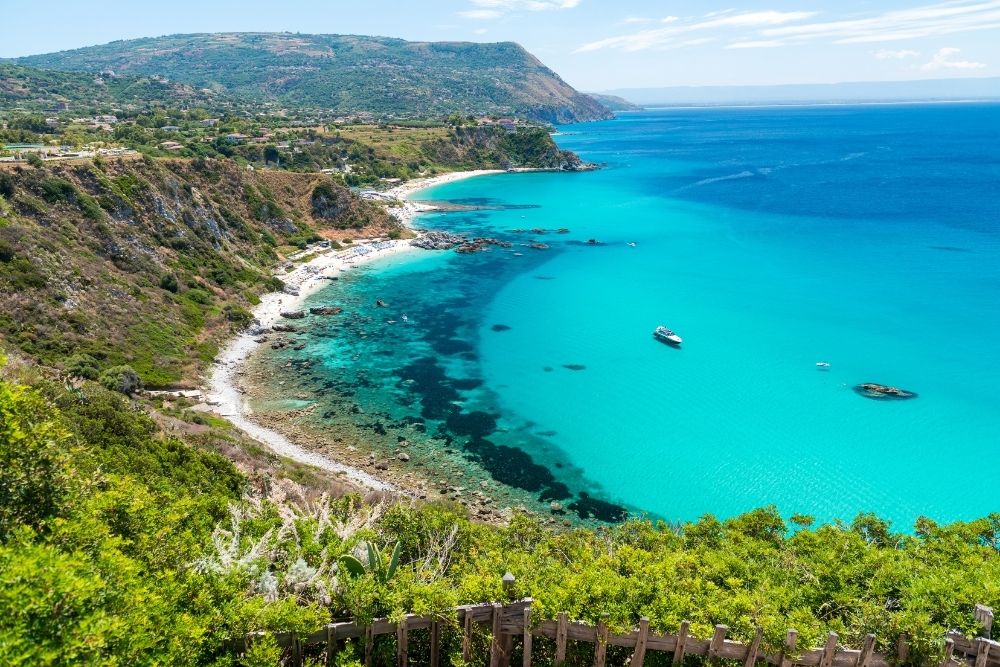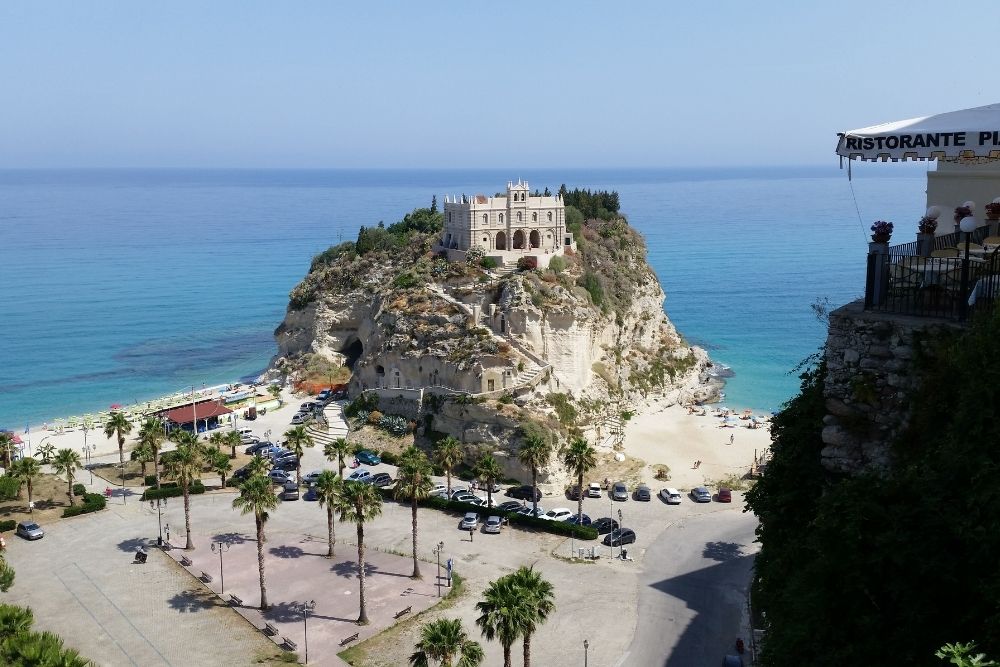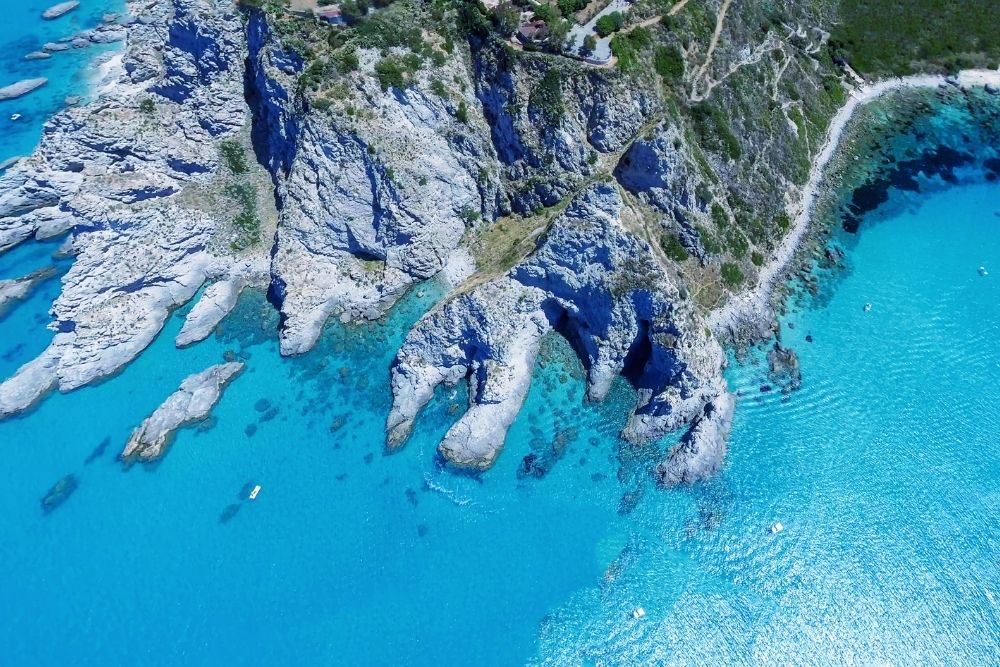
Scilla
Located at the northern tip of the Calabrian coast in the province of Reggio Calabria, Scilla is one of Italy’s most picturesque and legendary seaside towns.
Perched dramatically above the Strait of Messina, this town offers a rare blend of natural beauty, ancient mythology, traditional fishing culture and coastal serenity.
Its name is forever tied to Homer’s epic tales, where Scylla, the sea monster, threatened Odysseus from her rocky lair opposite Charybdis in Sicily.
Today, Scilla charms visitors with its sun-drenched beaches, medieval castles and pastel-colored houses that cascade down the cliffs to the water’s edge.
A town shaped by myth and the sea
Scilla’s legendary origins make it one of the most fascinating towns in southern Italy, deeply rooted in both mythology and maritime history.
In Greek mythology, Scylla was a beautiful nymph turned sea monster who haunted the narrow strait that separates Calabria from Sicily, devouring passing sailors.
This association with myth continues to influence local identity and tourism, blending storytelling with striking visuals of rugged coastline and deep blue sea.
Beyond legend, Scilla developed as a strategic coastal settlement, with a history of shipbuilding, fishing and defense that dates back to the earliest civilizations in Magna Graecia.
Chianalea: the Venice of the South
One of Scilla’s most enchanting districts is Chianalea, a historic fishing village known for its narrow stone alleys, waterfront houses and timeless ambiance.
Here, buildings rise directly from the sea, with foundations washed by the tides and fishing boats moored at front doors, creating a scene of serene authenticity.
Chianalea is often called the Venice of the South, not because of canals, but due to the seamless relationship between architecture and water.
Walking through its winding passages, visitors encounter small restaurants, artisan workshops and the peaceful rhythm of a community still tied to the sea.
Ruffo Castle and panoramic views
Dominating the headland of Scilla is Castello Ruffo, a fortress that has watched over the Strait of Messina for centuries and remains one of Calabria’s most iconic landmarks.
The castle has a layered history, originally built by the Romans, expanded by the Normans and later transformed by the noble Ruffo family into a military residence.
Its strategic position offered control over maritime traffic and defense against pirates, invaders and rival fleets from across the strait.
Today, visitors can explore its battlements, courtyards and terraces, enjoying panoramic views over Sicily, the Aeolian Islands and the crystalline waters below.
Beaches and the lure of the Tyrrhenian Sea
Scilla is blessed with some of the most inviting beaches in Calabria, where golden sands and transparent waters draw sunseekers, swimmers and families alike.
Marina Grande is the main beach, stretching below the castle and framed by gentle waves, modern amenities and dramatic cliffs that rise from the sea.
The area is ideal for snorkeling, paddleboarding and diving, with the clarity of the water revealing underwater rock formations and marine life.
Sunset here is particularly magical, with the silhouette of the Ruffo Castle and the fiery Calabrian sky turning the coast into a painting of southern Italian beauty.
Traditional fishing and swordfish culture
Scilla’s soul is tied to the sea not only through its geography but also through its long-standing tradition of swordfish fishing, a practice dating back millennia.
Locals have used feluccas, distinctive wooden boats with tall masts and forward platforms, to hunt swordfish in the strait’s turbulent currents with harpoons.
This ancient technique requires precision, teamwork and deep knowledge of the sea, passed down from generation to generation among Scilla’s fishermen.
Each summer, the swordfish season is celebrated with festivals, fresh seafood markets and waterfront feasts that reflect the region’s maritime heritage.
Local cuisine and southern flavors
Scilla’s culinary traditions are rooted in its access to both the sea and fertile Calabrian hills, offering a cuisine rich in flavor, freshness and cultural fusion.
Signature dishes include swordfish prepared alla ghiotta with capers, olives and tomatoes, as well as grilled octopus, anchovies and sun-dried peppers.
The region’s wines, including robust reds and crisp whites from nearby hills, pair beautifully with seafood and pasta made from locally milled flour.
Dining in Scilla is often a seafront affair, with family-run trattorias offering unforgettable meals accompanied by ocean breezes and views of the glowing horizon.
Religious life and cultural identity
Faith plays an important role in Scilla’s identity, reflected in its churches, chapels and religious processions that connect past and present communities.
The Church of San Rocco, patron saint of the town, sits on a hilltop above Marina Grande and is a place of pilgrimage and devotion for locals and visitors alike.
Each August, Scilla honors San Rocco with a festival that includes processions, music and fireworks, creating a vibrant celebration of faith and culture.
Throughout the year, the town also hosts smaller religious events that blend sacred tradition with a strong sense of communal pride and history.
How to get to Scilla and when to visit
Scilla is well connected to major cities in southern Italy, with frequent trains from Reggio Calabria and connections to other parts of Calabria and Sicily.
Visitors arriving by car will find scenic coastal drives that wind through cliffs, beaches and olive groves, offering postcard views at every turn.
The best times to visit are late spring and early autumn, when the weather is warm, the beaches are uncrowded and the town reveals its quiet charm.
Summer is also wonderful for cultural events and sea activities, though it draws larger crowds, especially during local festivals and the swordfish season.
Why Scilla deserves a place on your Italian itinerary
Scilla is not just a seaside resort, it is a place where mythology, architecture and daily life coexist in a harmony rarely found in modern travel destinations.
Its beauty lies in the details, from fishing nets drying in the sun to castle walls glowing at dusk and the echo of ancient tales on sea breezes.
In the province of Reggio Calabria, Scilla offers a window into the past while providing modern comforts, coastal pleasures and genuine southern hospitality.
For travelers in search of both legend and landscape, Scilla is a timeless destination where the soul of Calabria meets the heart of the Mediterranean.







